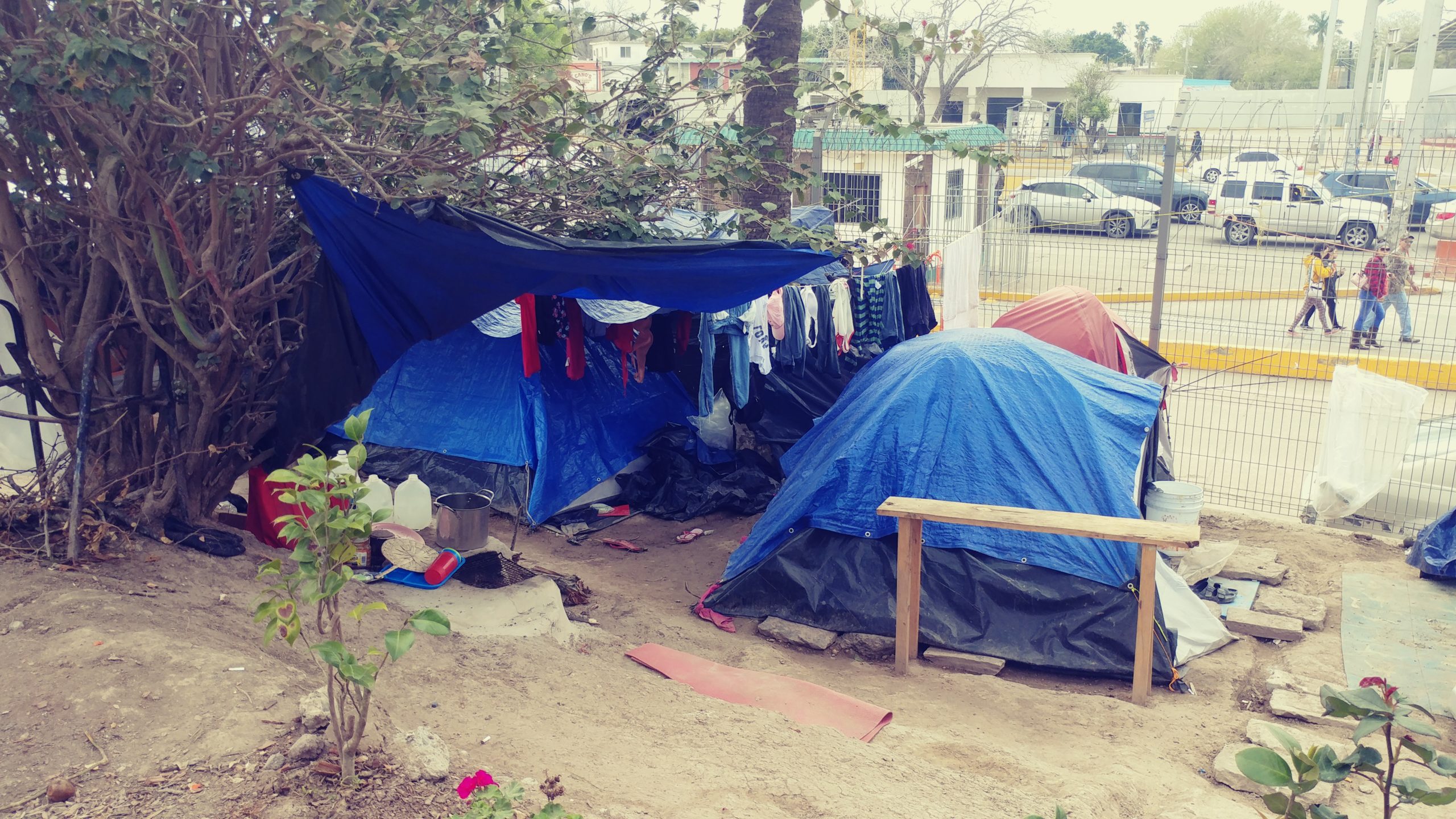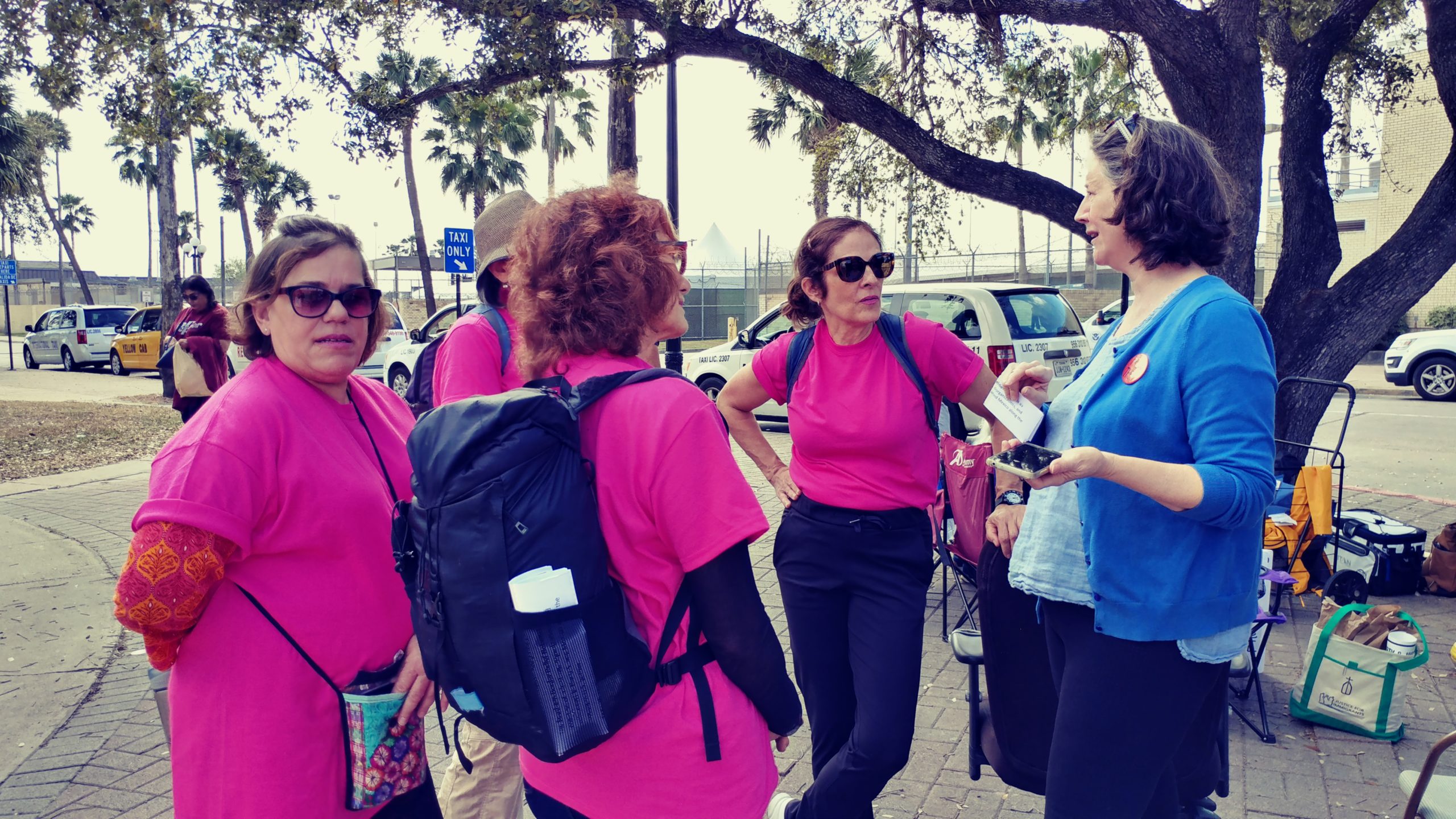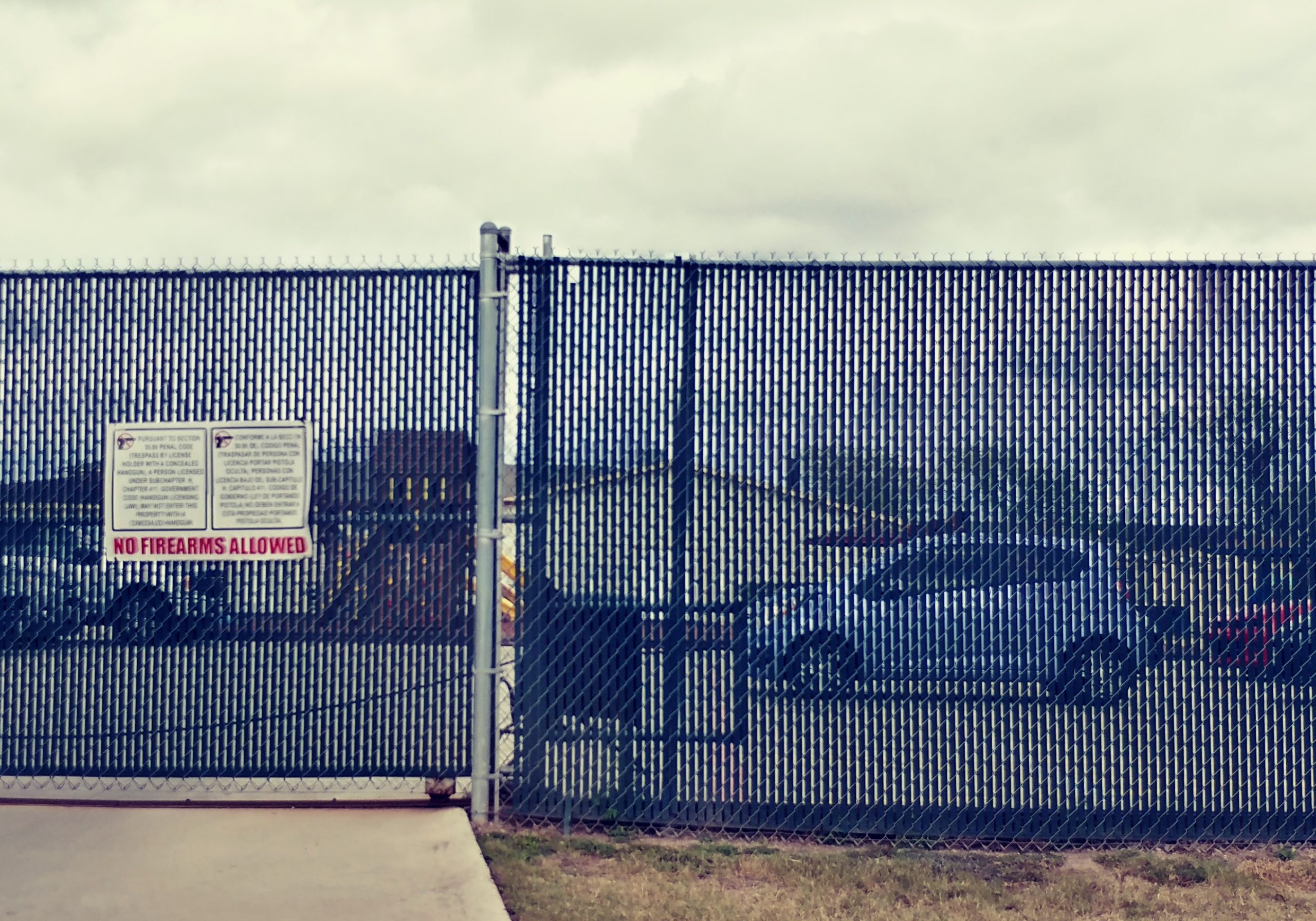It’s the little things you notice; the small pot of roses planted in the mud, the water bottle turned into an herb planter, the stoves made out of mud, and the little girls with perfectly braided hair.
I went to Matamoros, Mexico to witness the effects of Trump’s immigration policy. The Orwellian named Migrant Protection Policy, or MPP, denies asylum seekers the ability to stay in the United States while they wait for their asylum cases to be resolved. These people, who have followed the law by voluntarily presenting themselves at a port of entry and requesting asylum, are forced to wait in squalid tent camps, where the only means of survival comes either through their own resilience; tents made of garbage bags and sticks, ovens made of mud, or help from a myriad of volunteer organizations. A majority of them are families with small children, running from gangs that threaten torture, kidnapping and murder; nearly everyone has been living there for at least five months.
The fact that the policy has been called illegal by immigration officers, the United Nations and Ninth District Court has not deterred the Trump administration. Rather than abide by US and International Human Rights laws Trump is doubling down on cruelty, deporting mostly mothers and children to Guatemala or El Salvador, two of the countries with the highest murder rates in the world. Many have died or disappeared after deportation. To further intimidate and terrorize, he has recently sent armed troops to the camps.
These facts are horrid enough when they’re read. But, to be there is to witness the human toll and its everyday impact on real people. As I walked through the tent city and talked (through my Spanish-speaking friends) with the people living there, I got a sense of what it’s like to run because gangs with a proven history of murder threatened your daughter, travel for over six months with little kids through dangerous territory, and then be forced to live in a tent city with no running water and no electricity for months on end, with no idea of how it all will end.
I met a man who wanted to practice his English. His wife came out of the tent; about 3 by 8 feet. She forced a smile, but looked utterly exhausted. I asked how many children she had and how long they’d been there: four kids, five months. They had a little mud stove under a tarp, and had made a little shelf to hold some basic food supplies. I thought about my own daughter, and wondered, how do you raise four kids in a tent city?
How do you put them to bed at night? What do you do after the sun goes down and there’s no electricity? How do you keep them and yourself clean with no running water? How do you maintain any privacy when your nearest neighbor is feet away and can hear every word you say? How do you protect yourself from the gangs that have shootouts with the police feet from your tent, a nightly occurrence in Matamoros?
Most of all, how do you keep panic at bay, hearing that the people before you who finally got their day in court were deported to the very place you ran from?
I met a man, who had had a good job with a Mexican American import company, with offices in El Salvador, who talked about the threat of deportation. He and his wife had built a good life there, with his mid-level manager job and her own business. Their success made them targets for extortion. They paid for a while, but it was never enough, so, when his kids and his parents were threatened again, they ran for their lives. He told me, “I’m not looking for a handout. I just want to be able to live and work somewhere and keep my family safe. I worked hard, played by the rules, and paid my taxes. I’m doing what anyone would do; putting my family first again and again.” He’s learned, through his many months of waiting, that he has almost zero chance of being granted asylum under Trump’s immigration policies. Despite all this, he told us, “all I have now is hope.”
While I met so many caring people from my own country, volunteering daily to provide food, clean water, port-a-potties, stores where people could get things like soap, diapers, or basic food supplies, I could not escape the sense of shame I felt at my own country’s cruelty. I walked past a group of children who were happy and screaming with joy at the truck that had parked in the camp, handing out balloons and candies. They looked like any group of kids anywhere would. One little girl and I made eye contact and we smiled and waved at each other. She jumped off her bench, ran to me with a beautiful smile, and handed me her candy. My heart broke right there and has stayed broken. How can my country do this to innocent children?
The unfortunate reality is that this little girl was probably better off than the uncounted thousands who are in “detention centers” – jails for children – all around the country. I saw three in the little town of San Benito and one large one for teens in Las Fronteras. The children who were taken from their families as a result of Trump’s family separation policy remain separated. Many of them have been crying for their parents for over two years. They may believe now that they’ll never see them again, and they may be right.
I couldn’t get inside any of these centers, and without my local guide, a religious sister who ran a shelter, I wouldn’t have known what they were for. Old retirement homes and hospitals are converted into these prisons, and they looked unremarkable from the outside. Only the high fences and guard towers gave them away. As I peered through the fencing of one “tender age” facility, I glimpsed a toddler-sized sliding board and swing set. It was a beautiful day, but it was empty. The US is running prisons for toddlers. They’re funded by US taxpayers, at $750 a day per child, and are run by private, for-profit companies with ties to the Trump administration.
They’re often one of the few employers in an economically depressed town. Taxpayer dollars are enriching private corporations for taking children from their parents.
It’s a huge problem, illustrated by small moments. Now as the COVID-19 pandemic is spreading quickly and indiscriminately, it’s apparent how interconnected we are. The countless thousands on the border are incredibly vulnerable during this outbreak.
Every action taken makes a difference. Educate yourself. Join or donate to the Facebook groups Grannies Respond, Witness at the Border, Team Brownsville, Raices, Angry Tias and Abuelas. Many of these groups coordinate trips to the border, where you can stand as a witness, or help with meals or other humanitarian aid. Educate your friends. Call or write your legislators.
Get involved with campaigns locally and at the national level. Ask the candidates to explain their position on immigration and ask what they plan to do about the children in detention. Vote.
I brought some art supplies to the camps, and the kids drew pictures of the homes, relatives, and pets they left behind; of flowers, and angels and soldiers and of the camps themselves. One pictured the border wall, with crying children behind it. They were showing us their lives.
Don’t look away.
This post was written by Tess George, a member of Rights & Democracy NH and human rights advocate.



